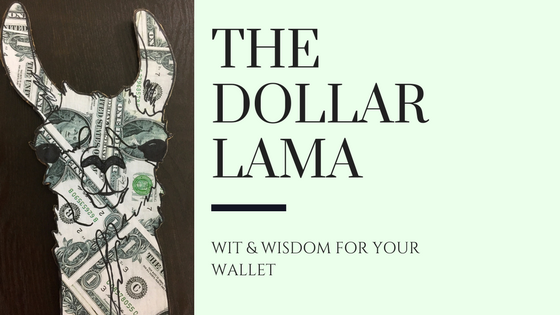Hello friends! I hope you are all healthy and as well as you can be.
As I begin to gear up for the end of the Coronavirus federal student loan forbearance period, my thoughts are turning to all the parents out there who are dealing with student loans for their college aged children. You know what that means, Parent Plus Loans. There are three things about Parent Plus loans that disturb me. First, you probably don’t know that parent borrowers are the largest growing demographic of student loan borrowers in the nation. Second, those borrowers might have lost some income in the pandemic last year and are about to have to squeeze their payment back into their tight budgets.
For More In Depth Information
If you want to more personal finance tips and strategies, including 5 Student Loan Debt Payment Tips, enter your information and click on "Learn More!"
Check your email for FREE gift details!
The third thing is a strategy for dealing with Parent Plus loans called double consolidation. If you haven’t heard of this strategy, here’s how it works. Since the only income driven repayment plan that is available for Parent Plus loans is the more expensive Income Contingent Repayment plan and that is only after you consolidate, the idea is to get into a cheaper income driven repayment plan by consolidating into a Direct Loan more than once. You see, the trick is you have to consolidate your loans enough times to eventually get to the point where your final consolidation loan has not paid off any Parent Plus loans. Does your brain hurt yet? It does twist the brain a bit.
Not only is this process tricky and tedious, it also sets my lawyer alarms off. There is a good reason for those alarm bells, too. It appears to me that the intent behind the rules about Parent Plus loans being excluded from Income Driven Repayment plans is that parents likely have higher incomes than their students and should have to pay back more of their loans (Congress conveniently forgets that many parents have student loans of their own and other debts, yuck yuck). So, that seems even less fair after the year we just suffered through but theoretically it makes sense.
If you look at the numbers and how the income driven repayment plans operate, you’ll see what I mean. Those income driven repayment plans could result in the forgiveness of a hefty chunk of principal and interest since some borrowers’ payments are not even enough to cover the monthly accrued interest which has to be paid first. In fact, it’s even possible to have a payment of $0.00 per month, if your income is low enough. So, if you make $0.00 payments for twenty years and wind up getting the rest of your principal and interest forgiven, that could wind up costing the government a pretty penny.
This is, of course, assuming the income driven repayment plans work they way they are supposed to. There’s no guarantee that will happen. Just look at the failure the Public Service Loan Forgiveness program has been, for example. Also, we still have a few years to go before the Income Based Repayment, the Pay As You Earn and the Revised Pay As You Earn plans mature. At that point, I’ll be interested to see how well those forgiveness programs operate. I have to tell you, I’m not real optimistic about it.
So, with all this principal and interest on the line, I wonder how well the double consolidation strategy will stand up to government scrutiny. I would hate to be the person to get to the end of a twenty-year payment period and wind up getting turned down for forgiveness because I bent the consolidation rules early on in the life of my loans. Of course, there’s a chance that it could work, too. I’m just not sure I would want to be the test case when the stakes are this high.
On that happy note, I’ll end by reminding you that there are other options for borrowers to ease their federal student loan burdens. To find out more, check out my Student Loan Debt 101 webinars by clicking here.
P.S. Make sure you check out my online courses, books and resources, too! Investing in your money management education is an investment in yourself. That’s the best investment you’ll ever make, I guarantee it!. Don’t forget my weekly Facebook live videos on Facebook.com/newcashview, Instagram @joyalfordbrand and on my YouTube channel NCVTV. You can catch me on Thursday evenings after 9:00 (Eastern Standard time), for my weekly NCVTV episode. They are packed full of useful and entertaining money management information! If you’ve missed any NCVTV episodes, you can see the latest on newcashview.com or you can check out my YouTube channel and get caught up! You can get there by clicking here. Remember, like and share the NCVTV videos on Facebook and all your social media platforms, so others can benefit from them, too!

